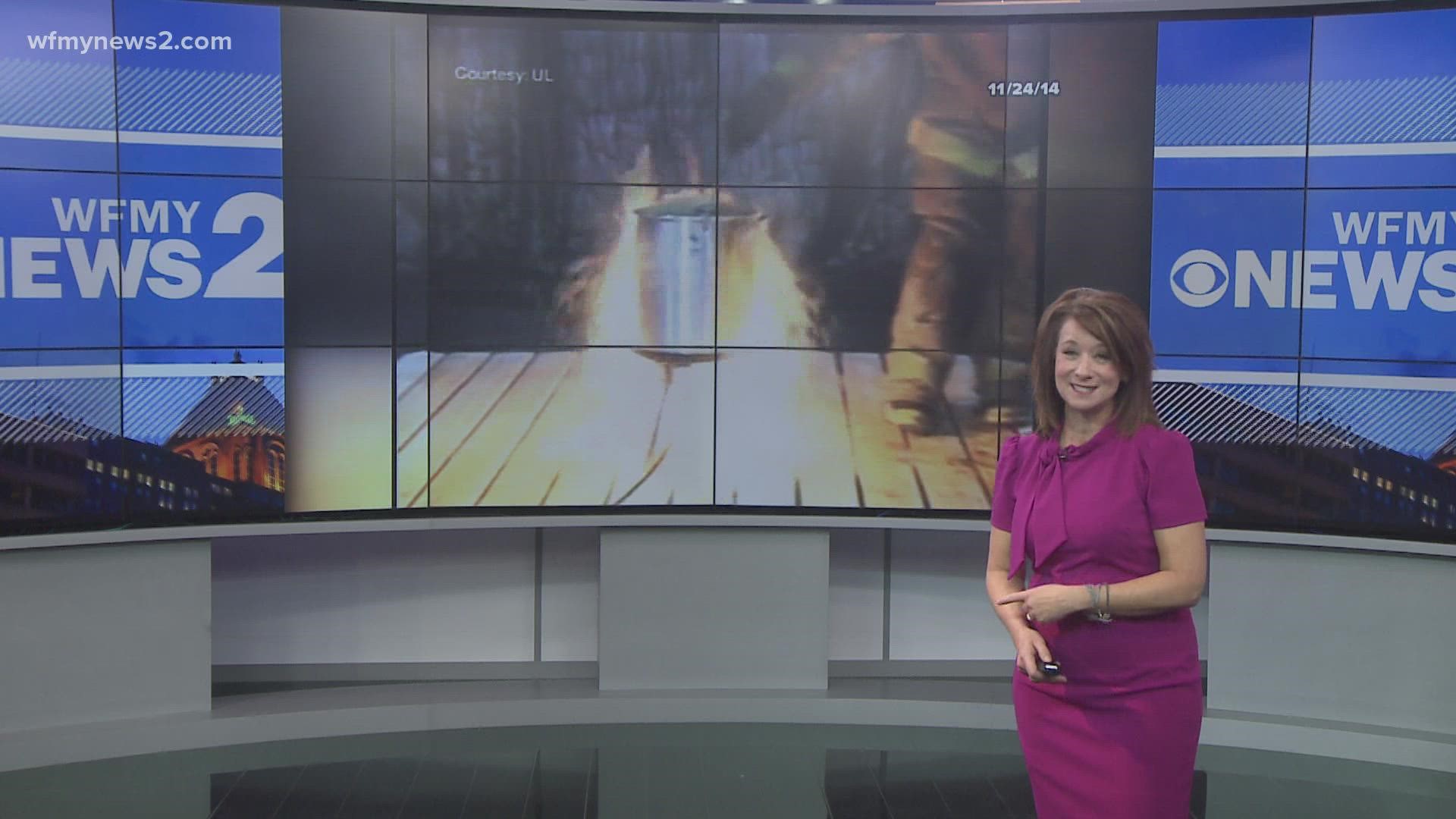GREENSBORO, N.C. — We’ve seen it. We’ve covered it. Turkey fryer fires are for real. A Greensboro neighborhood saw it happen first-hand years ago. It was a cold and wet Thanksgiving Day, so the folks moved the turkey fryer into the garage. They had the door open to the outside, but the fryer was under the cover of the garage. The fryer caught fire and burned not only their house but their neighbor’s home as well.
#1 Always use the fryer outdoors, never indoors, not under a carport, not in the garage with the door open. You need to have the fryer outdoors, period.
#2 Never use a frozen or partially frozen turkey. The turkey needs to be completely thawed. If it's not thawed, the combo of the frozen turkey and the hot oil makes it immediately boil over and the flames begin.
#3 Don't overfill the fryer. If you put in too much oil it will bubble over.
Greensboro Fire Department's Dee Shelton explains how to avoid this.
“You need to know how much oil should go in there. So, a day or two before you cook, mark it out and fill the fryer with water and dip in the frozen turkey. Mark it on the pot, do it a day or two before so when you go to put the oil in there, you know for sure how much you need and how the turkey will bring up the level of the oil,” said Shelton.
#4 Pat down the thawed-out turkey, making sure it's dry. A wet turkey in hot oil is a disaster.
State Farm has a list of points to check off to make sure you’re frying safely.
- Keep outdoor fryers off decks, out of garages, and a safe distance away from trees and other structures.
- Make sure the turkey is thawed and dry before cooking. Ice or water that mixes into the hot oil can cause flare-ups.
- Watch the weather. Never operate a fryer outdoors in the rain or snow.
- Place the fryer on a level surface, and avoid moving it once it's in use.
- Leave 2 feet between the tank and the burner when using a propane-powered fryer.
- Follow the manufacturer's instructions to avoid overfilling. Oil can ignite when it makes contact with the burner.
- Choose a smaller turkey for frying. A bird that's 8 to 10 pounds is best; pass on turkeys over 12 pounds.
- Never leave fryers unattended.
- Purchase a fryer with temperature controls, and watch the oil temperature carefully. Cooking oil that is heated beyond its smoke point can catch fire. If you notice the oil is smoking, turn the fryer off.
- Turn off the burner before lowering the turkey into the oil. Once the turkey is submerged, turn the burner on.
- Wear goggles to shield your eyes, use oven mitts to protect your hands and arms, and keep an "ABC" or grease-rated fire extinguisher close by. Do not use water or a garden hose on a fire-related to turkey fryers.
- Skip the stuffing when frying turkey, and avoid water-based marinades.
- Keep children and pets away from the fryer at all times.
- Once finished, carefully remove the pot from the burner, place it on a level surface, and cover to let the oil cool overnight before disposing of.
- Opt for an oil-less fryer. This uses infrared heat, rather than oil, to cook the turkey.

